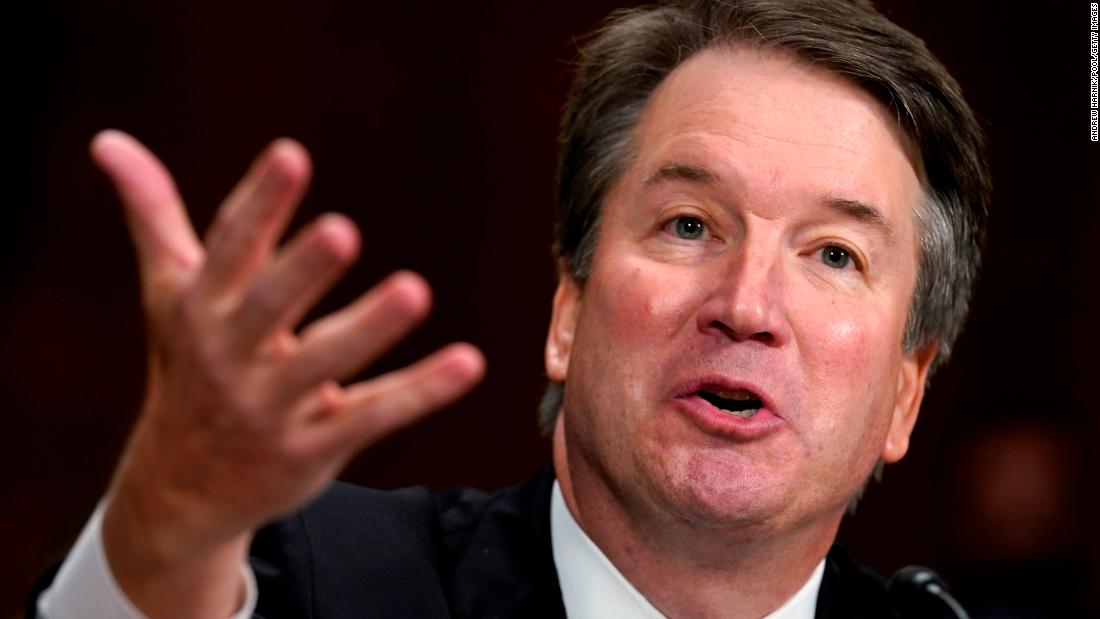
At least one factor in those countervailing results is Brett Kavanaugh.
While now-Supreme Court Justice Kavanaugh, like Trump, was not popular in the country as a whole -- 43% approved of his Supreme Court nomination, according to CNN's national exit polls -- it's also true that majorities of voters in those key states where Democrats lost Senate races said his nomination was a factor in their decision.
Senate Majority Leader Mitch McConnell said Wednesday the confirmation process woke up Republican voters.
"I think the Republican, sort of, core voters in the states what were critical to us, were highly offended by the questioning of the presumption of innocence and the tactics," McConnell said. "And I think it was like an adrenaline shot. We were worried about lack of intensity on our side, and I think the Kavanaugh fight certainly provided that. It was extremely helpful."
Just one Democrat, Sen. Joe Manchin of West Virginia, voted for Kavanaugh's confirmation. And while more than half of voters said Manchin's vote for Kavanaugh was not important to them, 60% said it was a factor in their decision. Manchin won those voters 56%-39%.
Just 29% said Manchin's vote was an important factor, and Manchin won those voters. In states where Democratic incumbents lost decisively -- Missouri (39%), Indiana (40%), and North Dakota (34%) -- larger portions of voters said the Kavanaugh vote was an important factor.
In North Dakota, conversely, where Democrat Heidi Heitkamp had made a show of her deliberations and ultimate rejection of Kavanaugh, 64% of voters similarly said her vote against Kavanaugh was a factor in their decision, and Heitkamp lost those voters 40%-60%.
It's a similar story in Missouri, where Democratic Sen. Claire McCaskill lost her bid for re-election. She opposed Kavanaugh, and 68% of Missouri voters said her vote was a factor in their decision. She lost those voters 46%-53%. And in Indiana, where Sen. Joe Donnelly lost to Mike Braun, the Kavanaugh vote was a factor for 69% of voters and Donnelly lost them.
Sen. Jon Tester won his bid for re-election in Montana, but he narrowly lost the 69% of voters who said the Kavanaugh vote was a factor.
In Florida, where Sen. Bill Nelson currently trails Republican Gov. Rick Scott, the results on Kavanaugh were more closely divided. Fifty-six percent of voters said the Kavanaugh vote was a factor, and Nelson narrowly lost them 49% - 51%.
Interestingly, Kavanaugh's confirmation played a larger role in Nevada, where 74% of voters in the exit poll said it was a factor. And Republican Dean Heller narrowly won those voters with, 50% to Jacky Rosen's 48%. But Heller lost the race and is the only sitting Republican to lose his bid for reelection Tuesday.
The Senate map, which included 10 seats won by President Donald Trump in 2016, was extremely friendly toward Republicans -- and they were able to capitalize that because of Trump's more than 50% approval rating in many of those states, including West Virginia, Indiana, Missouri, North Dakota and Florida.
The question about Kavanaugh was not asked in Ohio, Pennsylvania, Michigan or Wisconsin, all of which Trump won in 2016, and where Democratic Sens. Sherrod Brown, Bob Casey, Debbie Stabenow and Tammy Baldwin were re-elected.
No comments:
Post a Comment